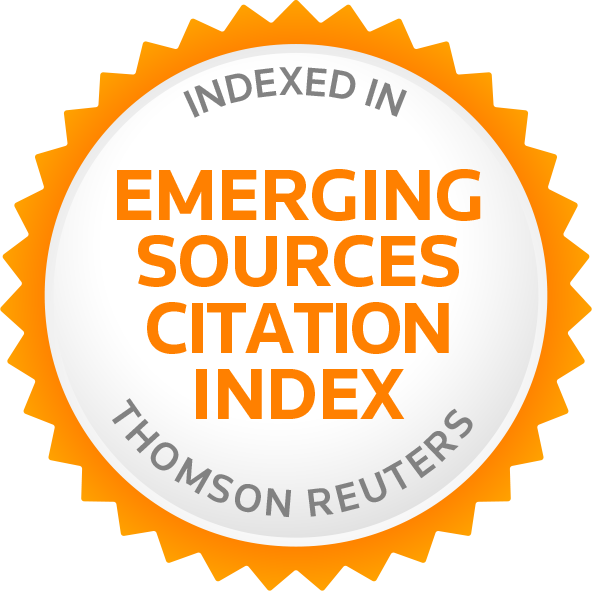Bureaucratic language as genre. A critical reading on the writings of modernity
Keywords:
género discursivo, escritura, Estado, burocraciaAbstract
In this article, bureaucratic language is problematized and it is proposed as a discursive genre with its own specific characteristics, which exceed the scope of public administration and is presented in other disciplinary writings: legal, journalistic, academic. Based on the analysis of a vast corpus of administrative documents, and on the Decree 300/06 on Gestión de la Comunicación Escrita para la Administración Pública de la Provincia de Buenos Aires, the authoress proves that all writing tends to become bureaucratic when it stops thinking itself and uncritically autoreproduces to stating constancy rather than promote communication.
Downloads
References
BAJTIN, Mijaíl [1982] (1998). Estética de la creación verbal. México D. F.: Siglo XXI.
CASABONE, Griselda (2007). «El proceso de comunicación del De- creto N.° 300/06 - De la escritura a la gestión». En IV Congreso Argentino de Administración Pública. Buenos Aires: Asociación Argentina de la Administración Pública.
DESSAU, Renata (2016). Escribir en la universidad. Un desafío a la creatividad y pensamiento crítico. Buenos Aires: Paidós.
GIORDANO, Alberto (2005). Modos del ensayo: de Borges a Piglia. Rosario: Beatriz Viterbo.
JUARROZ, Roberto (1988). «Las palabras no son talismanes» (p. 90). En Undécima poesía vertical. Buenos Aires: Pre-textos.
LARROSA, Jorge (2003). «El ensayo y la escritura académica». Pro- puesta Educativa, 12 (26). Buenos Aires: Facultad Latinoamericana de Ciencias Sociales (FLACSO). WEBER, Max [s/d] (1985). ¿Qué es la burocracia? Buenos Aires: Leviatán.
REFERENCIAS ELECTRÓNICAS
BIANCONI, Lucrecia; CASABONE, Griselda (2006). «Estado y es- critura. Una mirada comunicacional». Revista de la Gestión Pú- blica (N.º 1), pp. 91-97. Buenos Aires: Subsecretaría de la Gestión Pública [en línea]. Recuperado de <http://www.claudiabernaz- za.com.ar/web/23-textos/39-documentos-politicos-y-de-ges- tion-otros-autores>.
DECRETO DE LA PROVINCIA DE BUENOS AIRES N.º 300 (2006). «Gestión de la comunicación escrita en la Administración Pública de la Provincia de Buenos Aires» [en línea]. Recuperado de .
DE MIGUEL, Elena (2000). «El texto jurídico-administrativo: análi- sis de una orden ministerial». CLAC. Círculo de lingüística aplicada a la Comunicación (N.º 4). Madrid: Universidad Autónoma de Ma- drid [en línea]. Recuperado de <http://pendientedemigracion.ucm. es/info/circulo/no4/demiguel.htm>.
MELO, Jorge (2013, 25 de marzo). «Apuntaciones críticas sobre el lenguaje burocrático». En Ámbito Jurídico. Colombia [en línea]. Recuperado de <http://www.jorgeorlandomelo.com/ambi_apun- ta.html>.
PALAVECINO, Darío (2016, 22 de abril). «Anularon el fallo de un juez porque copió 75 párrafos de otra resolución». La Nación [en línea]. Recuperado de <http://www.lanacion.com.ar/1891666-anu- laron-el-fallo-de-un-juez-porque-copio-75-parrafos-de-otra-re- solucion>.
RODRÍGUEZ NIELL, Paz (2006, 26 de noviembre). «Piden a los jue- ces que redacten los fallos en un lenguaje más claro». La Nación [en línea]. Recuperado de <http://www.lanacion.com.ar/862289- piden-a-los-jueces-que-redacten-los-fallos-en-un-lenguaje-mas- claro>.
TENENBAUM, Tamara (2016, 17 de julio). «¿Pokemon o dinero K? Lo divertido vs. lo importante en los medios del siglo XXI». La Nación [en línea]. Recuperado de <http://www.lanacion.com. ar/1918816-lo-divertido-y-lo-importante-en-los-mediosno- ta-de-tapa>.
Downloads
Published
How to Cite
Issue
Section
License
The acceptance of an original by the journal implies the non-exclusive transfer of the patrimonial rights of the authors in favor of the publisher, who allows the reuse, after its edition (postprint), under a Creative Commons License Attribution-NonCommercial-ShareAlike 4.0 International.
According to these terms, the material can be shared (copy and redistribute in any medium or format) and adapted (remix, transform and create another work from the material), provided that a) the authorship and the original source of their publication (magazine and URL of the work) are cited, b) is not used for commercial purposes and c) the same terms of the license are maintained.
The assignment of non-exclusive rights implies that after postprint in Oficios Terrestres authors may publish their work in any language, media and format; in that case, it is requested that they signal that the material was originally published by this journal.
Assignment also entails the authors’ authorization for the work to be collected by SEDICI, the institutional repository of the Universidad Nacional de La Plata, and for it to be indexed in the databases that the publisher thinks appropriate for enhancing the visibility of the published work and its authors.
In addition, the journal encourages authors to submit their works to other institutional and thematic repositories after their publication in Oficios Terrestres, under the assumption that offering society unrestricted access to scientific and academic production contributes to a greater exchange in global knowledge.







_(Custom)11.jpg)




.png)






















